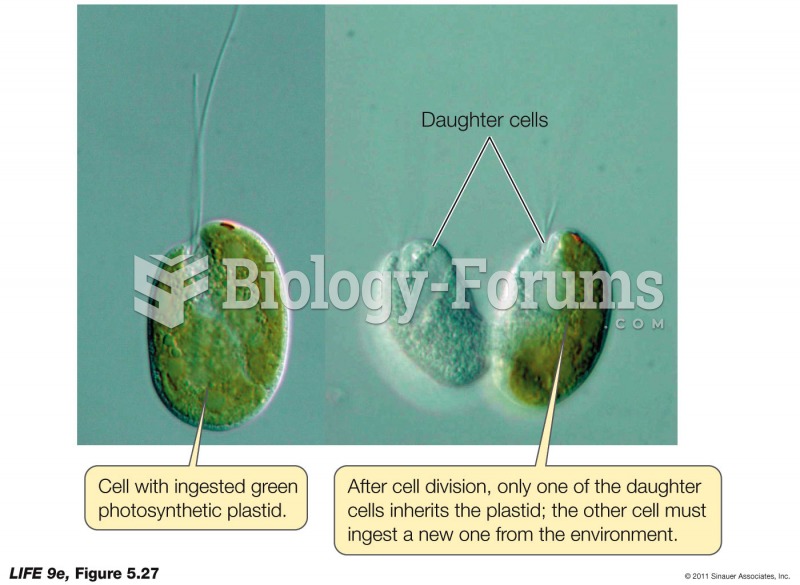|
|
|
Cancer has been around as long as humankind, but only in the second half of the twentieth century did the number of cancer cases explode.
According to the Migraine Research Foundation, migraines are the third most prevalent illness in the world. Women are most affected (18%), followed by children of both sexes (10%), and men (6%).
Parkinson's disease is both chronic and progressive. This means that it persists over a long period of time and that its symptoms grow worse over time.
In inpatient settings, adverse drug events account for an estimated one in three of all hospital adverse events. They affect approximately 2 million hospital stays every year, and prolong hospital stays by between one and five days.
When taking monoamine oxidase inhibitors, people should avoid a variety of foods, which include alcoholic beverages, bean curd, broad (fava) bean pods, cheese, fish, ginseng, protein extracts, meat, sauerkraut, shrimp paste, soups, and yeast.
 Mead analyzed taking the role of the other as an essential part of learning to be a full-fledged ...
Mead analyzed taking the role of the other as an essential part of learning to be a full-fledged ...
 Taking an interesting course can help keep your brain active. These seniors are taking a class in ...
Taking an interesting course can help keep your brain active. These seniors are taking a class in ...
 Effect-log dose curve for the analgesic action of three narcotics and aspirin. Hydromorphone is more ...
Effect-log dose curve for the analgesic action of three narcotics and aspirin. Hydromorphone is more ...




